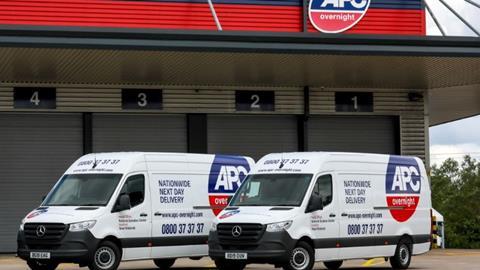The Alternative Parcels Company (APC) saw pre-tax profit jump by more than a quarter in the previous financial year, aided by a flourishing SME customer base and “strong, steady volumes”, the parcel delivery network has revealed.
According to APC’s latest annual results, to 31 March 2023, despite turnover dipping to £124.7m (2022: £127.4m), pre-tax profit leapt by 27% to £7.7m (2022: £6m) during the period.
APC has around 100 members with 103 depots between them. Members range from companies operating ten vehicles to firms running fleets of 80 trucks. Two thirds of its members are businesses run by second generation families whilst the lion’s share of APC business is from SMEs.
Jonathan Smith, APC chief executive, told MT that turnover for the year was dinted by a decline in the “mega-spending” seen in the previous year during the Covid-19 pandemic lockdowns in the e-commerce market, and particularly in areas such as the medical products sector.
However, he added, new revenue streams, including growing demand for boutique wine and beer deliveries during the year, had helped ameliorate the impact of falling Covid-related sales, along with a programme of concerted cost savings at the network. This was aided by APC’s ability to temporarily mothball one of its two hubs, which are based in Cannock and Essington, in response to shifting volumes.
Smith also praised the resilience of APC’s SME clients who, he said, had recovered from the pandemic more rapidly than larger retailers.
He added: “Other streams have come through and so a combination of that, and being very careful with our costs, has meant we have been able to produce a good profit out of a relatively flat turnover.”
During the year APC also continued to invest in its delivery operations and service offerings, boosting its fleet with the addition of 20 new trailers and introducing a range of additional services such as photographic evidence of delivery at the doorstep, increased consumer advice messaging and enhanced reporting.
Our people are our most important asset as a business and I’m so pleased that our Gender Pay Gap data is reflective of the value we place on fair equity and inclusion for all our employees.
Jonathan Smith, chief executive, APC
Smith, said: “The APC is growing from a very strong foundation, despite the continued pressure that both our business and our competitors face.
“Reporting year-on-year growth is a positive result, which is largely spurred by the continued strength of our SME customer base, many of which have flourished, despite numerous economic headwinds over the last few years.
“We’re also encouraged by the consumer buying trends that we’ve seen, and the strong and steady parcel volumes across our network, which are showing a return to our pre-pandemic growth pattern.
“We remain committed to supporting and championing our customers across the network as they continue to build for the future, investing in our own business and workforce this year, to provide them with the best possible service.”
In addition to investing in its business operations, APC also continued to invest in its workforce, achieving positive progress for its female employees in the year with a -3.2% gender pay gap, which sees APC female employees now earn slightly more than men on average.
Smith said: “Our people are our most important asset as a business and I’m so pleased that our Gender Pay Gap data is reflective of the value we place on fair equity and inclusion for all our employees.
“As a business we’ve worked hard to facilitate learning and development opportunities and create a work environment that removes barriers, and allows women to achieve their full potential within our business - unhindered by factors outside of their role.
“It’s encouraging that this continued investment and a subsequent increase in female participation in leadership and managerial roles is now shown through the data.”
Looking to the future, Smith told MT that the continuing economic uncertainty made him reluctant to predict what this year’s peak period will bring.
“Considering where we are now, and if we continued in the same way as we did this year, I would say we would be very comfortable. But I’m not going to predict, because there’s not a single economist that will tell you what the economy’s doing this year,” he added.













